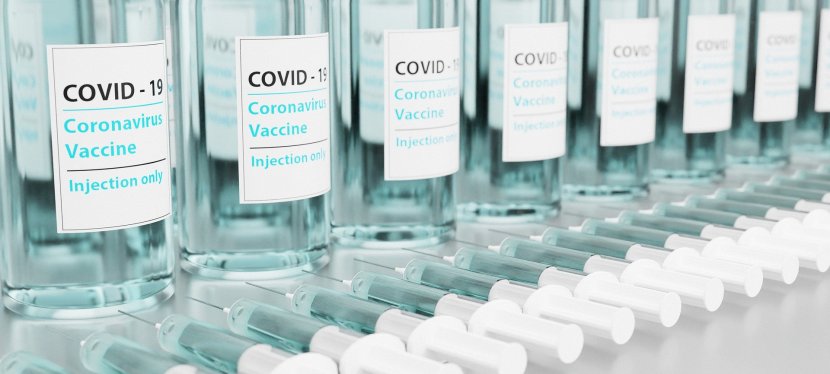By Christina Dorett
Tomorrow, August 16th, marks the one year anniversary since the passing of the Inflation Reduction Act 2022 (IRA). The legislation provides authorization for Medicare to negotiate directly with drug manufacturers to bring down the price of ten high-cost prescription drugs for the benefit of seniors covered by Medicare.
Prescription drugs have assumed an increasingly important role in American health care, a trend likely to continue. One study estimates that “[p]rescription drug spending on retail and non-retail drugs is poised to grow 63% from 2020 to 2030, reaching $917 billion dollars” (p. 2).
Three in 10 Americans on a prescription drug, report not taking their medicine as prescribed due to cost. A poll asking respondents to identify their top priority issue appearing in the Build Back Better bill found that allowing the federal government to negotiate drug prices topped the list.
In the 2023 proxy season, a national coalition of long term, faith and values-based investors, who are members of the Interfaith Center on Corporate Responsibility (ICCR), filed resolutions with five major pharmaceutical companies, with a brand new ask: a report on the process that pharmaceutical companies use to determine whether to apply for a secondary or tertiary patent, intended to qualitatively verify if promoting access for patients, was a relevant factor in this process.
This resolution received 31.1% of investors’ support at the Merck AGM held on May 23rd 2023. The resolution secured 30% of the vote at Pfizer; 16.5% of the vote at Gilead, 14.42% at Johnson & Johnson. Just a few weeks later, on June 6th, 2023, Merck & Co. Inc. filed a lawsuit against the Department of Health & Human services (HHS) and Centers for Medicare and Medicaid Services (CMS), alleging “extortion” and a violation of their 1st and 4th amendment rights, in respect to the proposed negotiations of drug prices, on behalf of seniors covered under Medicare, as legislated under the Inflation Reduction Act 2022. Bristol Myers Squibb (BMY) followed with a similar lawsuit. Both companies are represented by the law firm, Jones Day. Lawsuits have been filed by Astellas and Johnson & Johnson in other jurisdictions. As well, the U.S. Chamber of Commerce and the trade association Pharmaceutical Research and Manufacturers of America (PhRMA) have filed suits with similar claims.
On-going legislative and regulatory concerns
The reality of high drug prices and the ills of the patent system have long been a topic of political debate. In April of this year, Senator Elizabeth Warren (D-Mass.) and Rep. Pramila Jayapal (D-Wash.) wrote to the United States Patent and Trademark Office (USPTO) regarding their concerns about the pharmaceutical industry’s broad use of anti-competitive practices that raise costs for patients and families. Warren and Jayapal wrote to the patent office asking it to take similar action in December 2022 and June 2021.
“Patients continue to suffer as prescription drug manufacturers jack up prices and rake in billions in profits,” the letter said. “We have yet to see the USPTO take substantial steps to exercise its existing administrative authorities to help lower drug prices, encourage competition, and increase innovation.”
A Thicket of Lawsuits
The lawsuits that Merck and the others have opted to file serve to fuel the controversy and fail to address the underlying concerns for equitable business decisions that serve the public who need access to these life saving drugs. Pharmaceutical companies have had a long run of putting their profit above all else, and this unregulated behavior has not served the patient, the taxpayer, seniors or any member of the public who is uninsured, underinsured and/or has an insurance company disallow a claim to secure access to the prohibitively expensive drugs, even though these drugs may save an individual’s life. While innovation was intended to save lives, the profit motive instead has rendered access to life saving drugs a luxury for those who are rich enough to afford them.
Here are the hard truths:
- Pharmaceutical companies have benefitted from federal research and development tax credits, on the grounds that they require investment for innovation to develop life saving drugs. Over time and due to the adherence to free market economic theories, buttressed by failures to regulate the business conduct of these pharmaceutical companies, they have business standards and processes that serve their profit motive without due consideration of how patients can secure their access to gain the innovative benefits of these patented drugs.
- These same pharmaceutical companies have engaged in lobbying to keep their profits healthy and growing, while they continue to pocket the federal tax credits and “covet” the research of the National Institute of Health (NIH), all paid for by the very same taxpayers they now litigate and have been lobbying against over decades.
- The allegation that negotiating drug prices for ten drugs yet to be named, for the benefit of seniors covered under Medicare, is “extortion”, exposes the singular profit motive of the leaders and management teams of these pharmaceutical companies.
- Lawsuits are expensive and contentious and they run afoul of the values statement of every pharmaceutical company in respect to their mission of serving the needs of patients, with their innovative medicines and vaccines.
- The claims in the lawsuits are explosive and tactically crafted in response to the politics of the day and accusations of profiteering and gaming the patent system levied by both the Republicans and Democrats in oversight committee hearings.
- The legal claim seeking an injunction is frivolous, premature and may be an abuse of the legal system, since no loss or damage has been sustained by Merck or BMY, nor is there any continuing loss and/or damage being sustained by these companies or any other party to the litigation, which is the only basis for a claim for an injunction.
- The claim that the IRA requirement to negotiate drug prices is a violation of Merck’s and BMY’s 1st and 4th amendment rights, adds insult to injury, since these lucrative and highly profitable pharmaceutical corporations have unfettered rights to unilaterally fix drug prices and to extend their patent exclusive periods, unfairly preserving their monopoly.
Given the news coverage exposing the reality of patent thickets and how the pharmaceutical companies are gaming the patent system, the lawsuit filed by Merck and BMY is tone deaf to public sentiment and dismissive of public wellbeing, and, as investors, we urge pharmaceutical companies to refrain from filing lawsuits that do not address the public right to healthcare, that do not address the underlying concerns over the unaffordable prices of life saving drugs and that do not align with their own Mission and Values statements to serve the benefit, interest, wellbeing and life of the patient.



